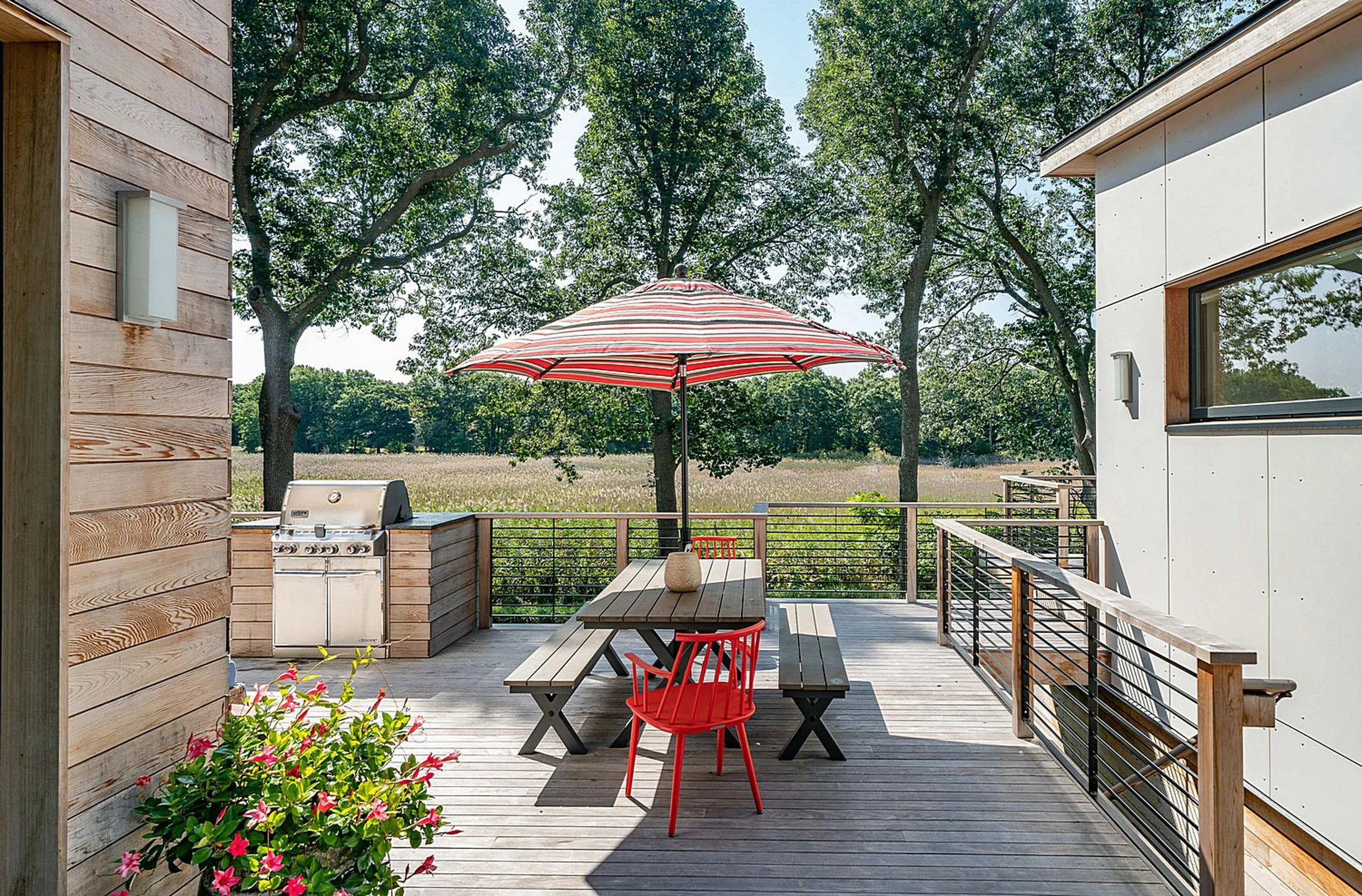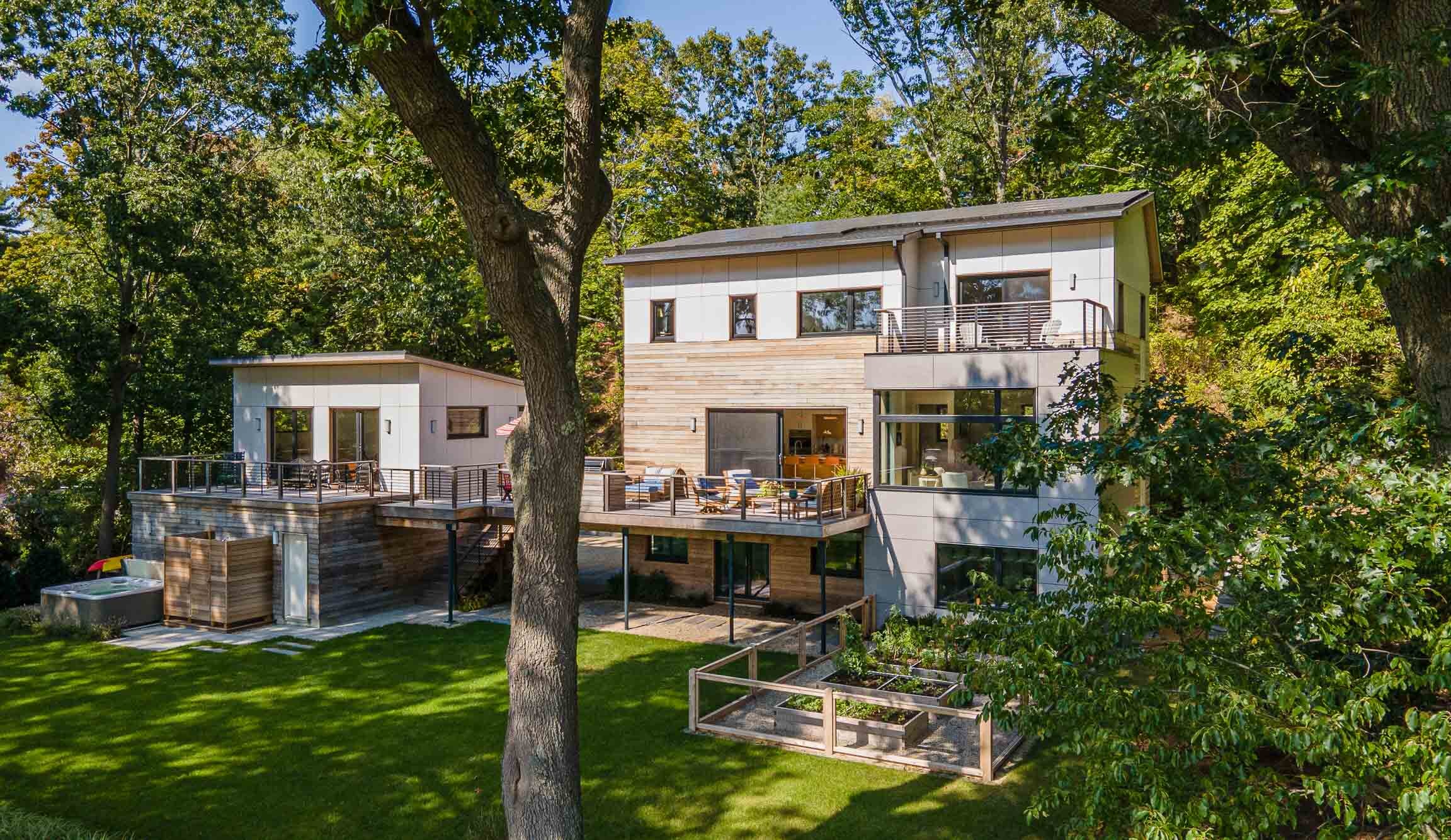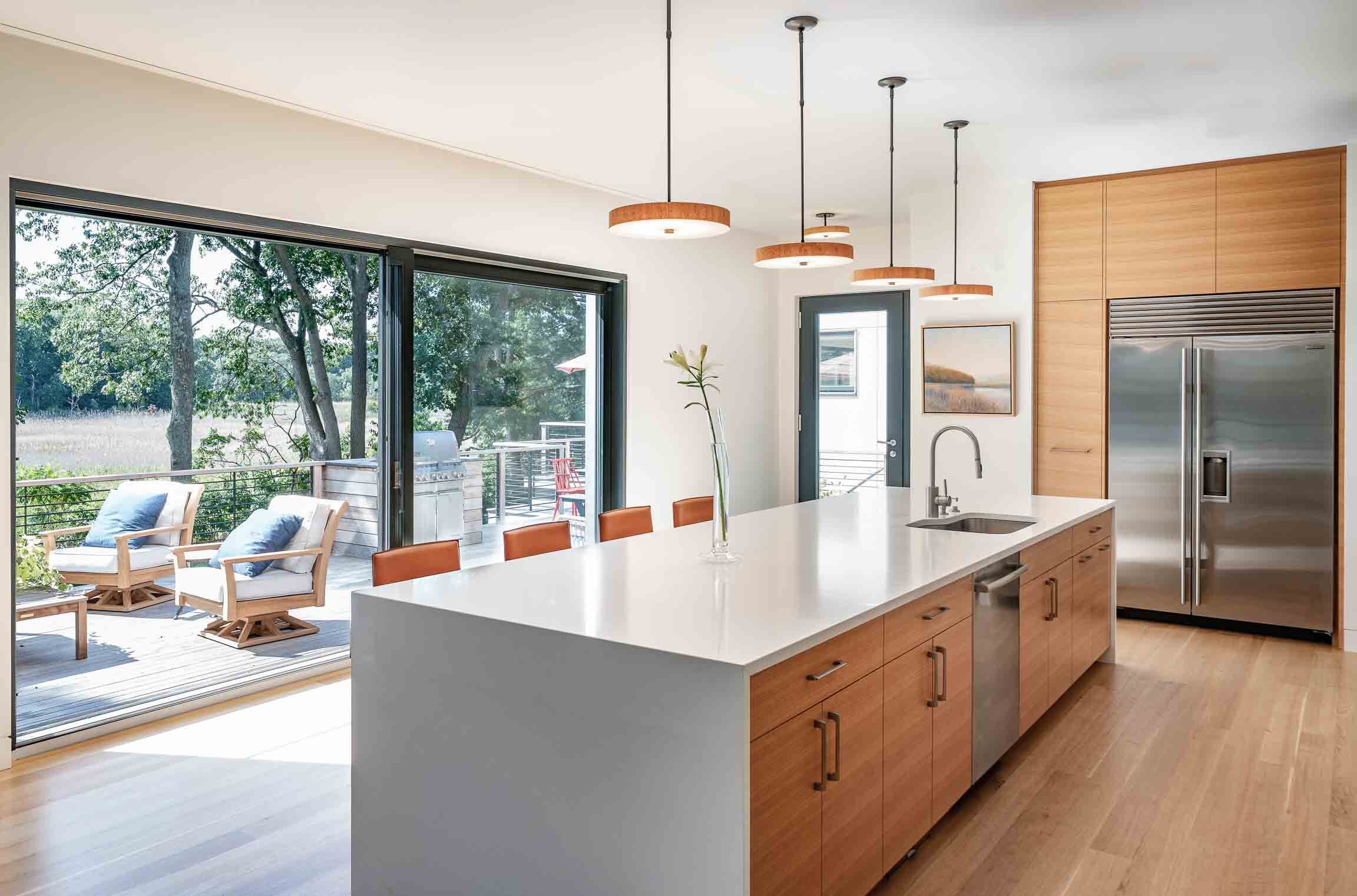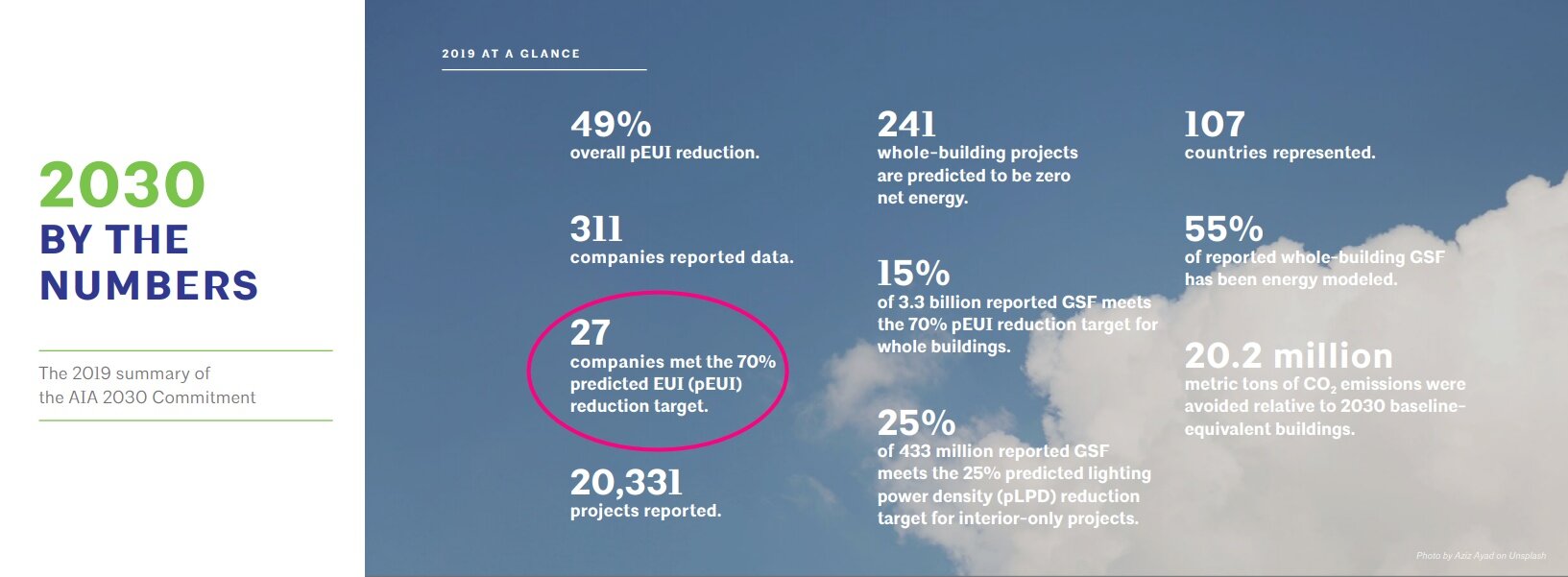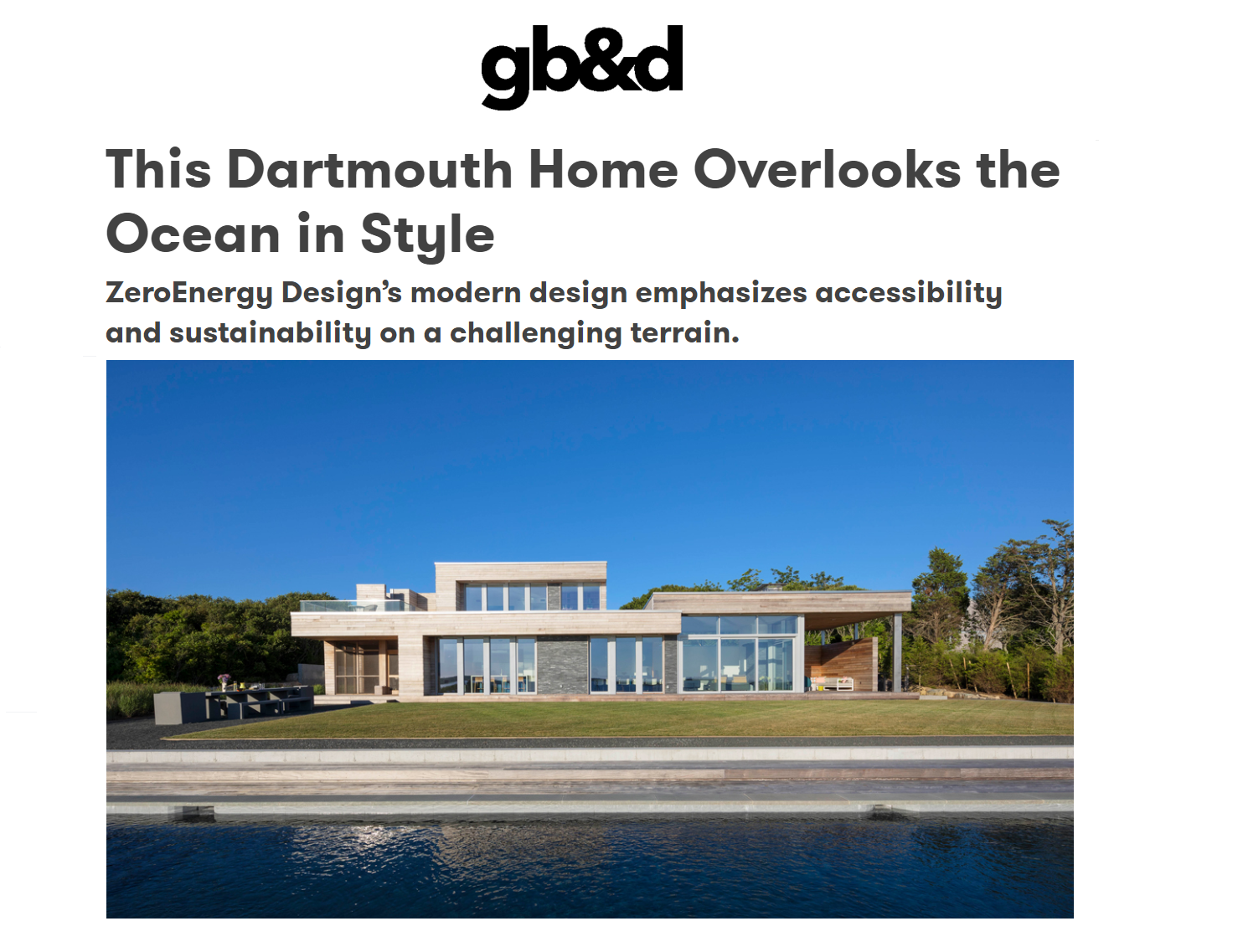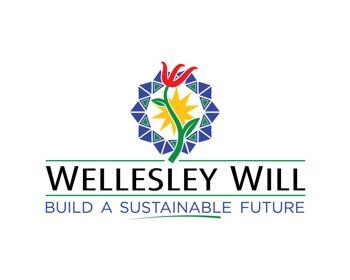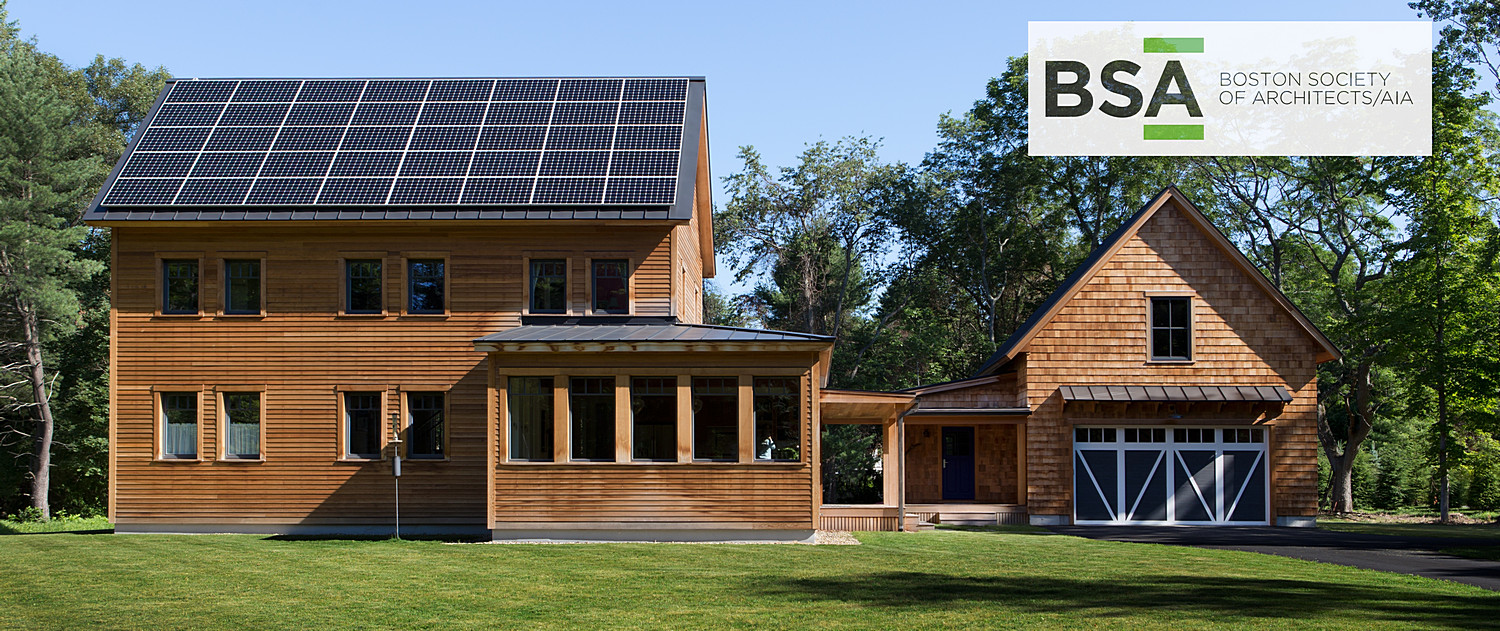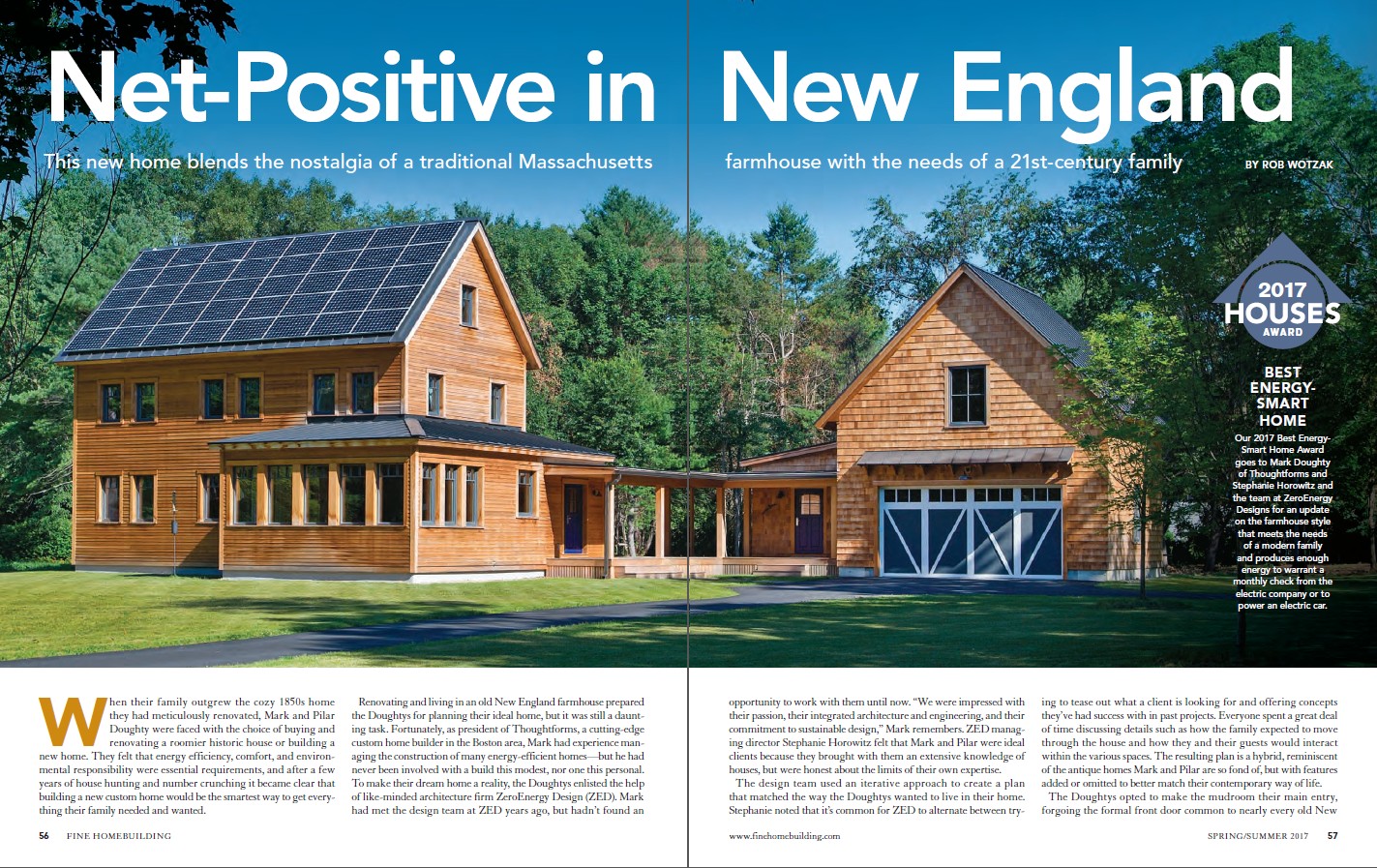ZED’s new modern home in Hingham MA was featured in the Spring 2021 issue of Boston Home magazine alongside other incredible projects and helpful building green tips. The article, titled ‘Everything You Need to Know to Design a Greener Home,’ focuses on three forward-thinking projects that embody the best of sustainable design today. It’s also chock-full of useful tidbits and vernacular for anyone starting the conversation about building a net zero energy home, and includes concepts from green appliances to paint selections that contribute to a healthier home.
The net zero ‘eco-oasis’ in Hingham, designed by ZED’s Stephanie Horowitz and John Mucciarone, is profiled in detail. The 4,200 square foot home takes advantage of its natural surroundings with multiple decks overlooking the marsh and a large vegetable garden, all part of the owners desire to live a greener lifestyle. The home also includes a private guest studio above the garage, which allows their adult children added privacy and the ability to really spread out when visiting.
The Hingham home’s green features include continuous insulation, triple pane windows, air-source heat pumps, and a solar electric system, all contributing to net zero energy performance.
Check out the article here: Boston Home
More project images and details coming soon to ZED’s Portfolio page.

